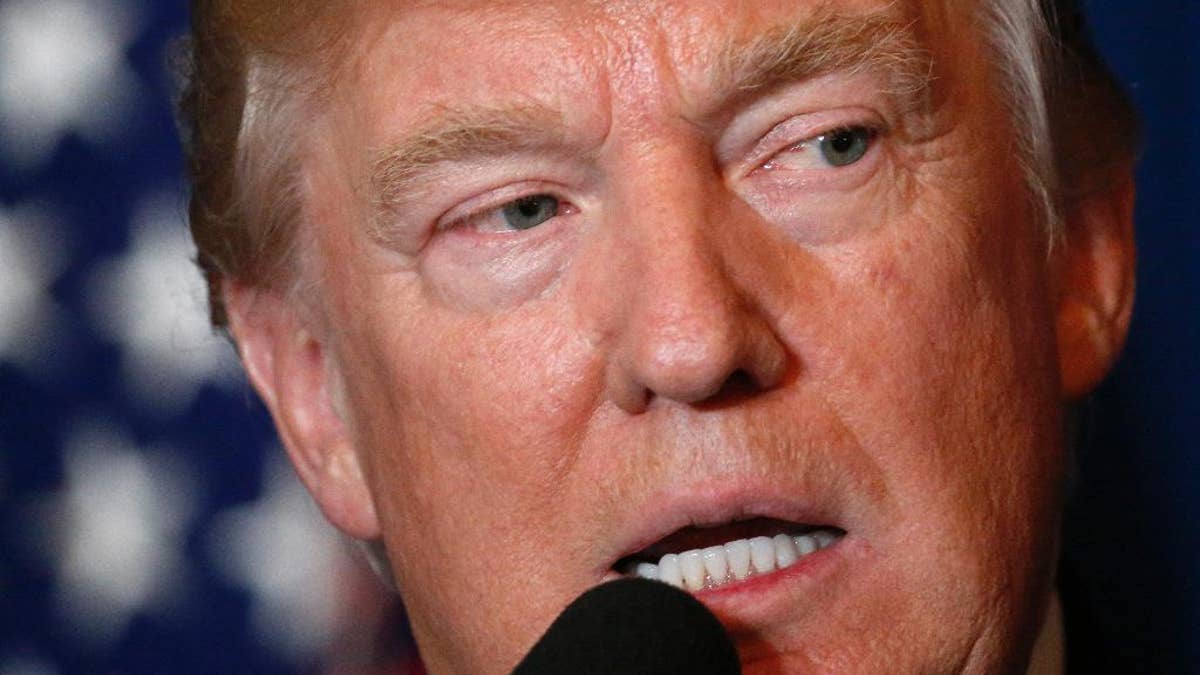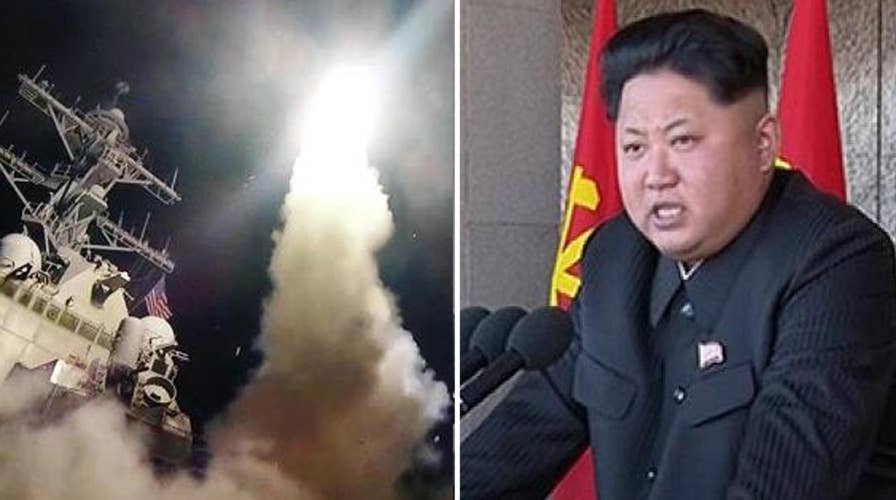Syria strike sends powerful message to North Korea
Part of missile defense system moves to South Korea
The morning after President Trump launched dozens of cruise missiles at a Syrian military air base in retaliation for a chemical weapons attack earlier this week, much of the world’s mainstream news media endorsed the strike, though there were notable dissenters.
Australia’s largest daily newspaper praised the attack.
“Many critics argue that the Obama administration was always wrong to trust Russian President Vladimir Putin. They also wonder why Mr. Trump trusted him as well - at least until this week,” the editorial board of the Sydney Morning Herald wrote.
An op-ed piece in Toronto’s Globe and Mail newspaper quibbled with some of the optics of the attack but refrained from any direct criticism of it.
The New Zealand Herald offered a generally supportive editorial on Trump’s action, but also warned that the immediate future will be challenging for him.
Before the attack, some news agencies had demanded that strong action be taken, which could be read as a call for the kind of action the U.S. took.
“The many images from Syria of dead children and despairing civilians have left the world all but numb to the horrors of the country’s more than six years of civil war,” the South China Morning Post wrote before the missiles were launched.
“But a chemical attack on Tuesday demands attention as much for the heart-wrenching pictures and videos of the victims as for the need to determine who was behind it and hold them accountable. A war crime has been committed, one so cruel that to do nothing, as has happened too many times during the conflict, is to give tacit approval for even greater levels of barbarity.”
Not all voices were positive. Besides the predictable opposition to the attack from supporters of Syria, like Iran, some Western newspapers, while not directly critical, published negative editorials.

President Donald Trump speaks at Mar-a-Lago in Palm Beach, Fla., Thursday, April 6, 2017, after the U.S. fired a barrage of cruise missiles into Syria Thursday night in retaliation for this week's gruesome chemical weapons attack against civilians. (AP Photo/Alex Brandon) (The Associated Press)
“Donald Trump, the man who just over a month ago wanted to bar entry of all Syrian refugees into the United States, now wants us to think that he cares deeply about Syrian children. I don’t believe it,” Moustafa Bayoumi wrote for the Guardian.
Ibrahim Al-Marashi, a history professor for California State University-San Marcos, wrote in an opinion piece for Al Jazeera that the attack will probably do more for President Trump’s approval ratings that it would to end the conflict in Syria.
“Trump authorized this attack to ostensibly demonstrate that he will take a harder line against Syria, unlike his predecessor Barack Obama,” Al-Marashi wrote in his column. “While Trump’s actions represent the first time the US has attacked Assad’s forces since the civil war began six years, this military strike is embedded in a deeper history of America disciplining countries from the air over their weapons of mass destruction facilities. Trump is in fact carrying on the legacy of President Bill Clinton.”
Russia’s state-funded news agency RT published an op-ed that said Trump will, “prove to be no better than Hillary Clinton,” while the author criticized his decision to strike.
“The question remains though, after the Idlib chemical attacks and the airstrikes against Assad’s military base in Homs, will this thin-skinned president do a full 180-degree change in his policy toward Assad and revert to Obama’s doctrine? Or were the strikes a one-shot PR gift horse which he couldn’t resist,” writes Martin Jay.
“Trump badly needs a Middle East initiative which brings him positive press coverage and feeds his febrile need for attention, in a period where his ratings have hit a record low mark,” Jay adds. “It may well be Obama’s so-called 'red line' in Syria which could be the basis of a new strategy there, given that his previous ‘safe zones’ plan seems to have been shot out of the sky.”
In the U.S., major newspapers that have sometimes been intensely critical of Trump held their fire.
The New York Times, published an op-ed article entitled “After the Missile, We Need Smart Diplomacy,” by Antony J. Blinken, a former deputy secretary of state from the Obama administration. Blinken applauded Trump’s decision to strike.
“President Donald J. Trump was right to strike at the regime of Syrian President Bashar al-Assad for using a weapon of mass destruction, the nerve agent sarin, against its own people,” Blinken writes. “Mr. Trump may not want to be ‘president of the world’ but when a tyrant blatantly violates a basic norm of international conduct — in this case, the ban on using chemical or biological weapons in armed conflict, put in place after World War I — the world looks to America to act. Mr. Trump did, and for that he should be commended.”
The Washington Post’s editorial board offered qualified support for Trump’s action.
“The Syrian war, a cauldron of complexity and misery, is not an easy knot to untie,” reads the editorial. “This is the first direct strike on Syrian forces since the civil war began six years ago. The next steps will have to be carefully considered so a spasm of reaction does not simply make things worse on a battlefield where Russia and Iran are backing the Syrian regime.”









































